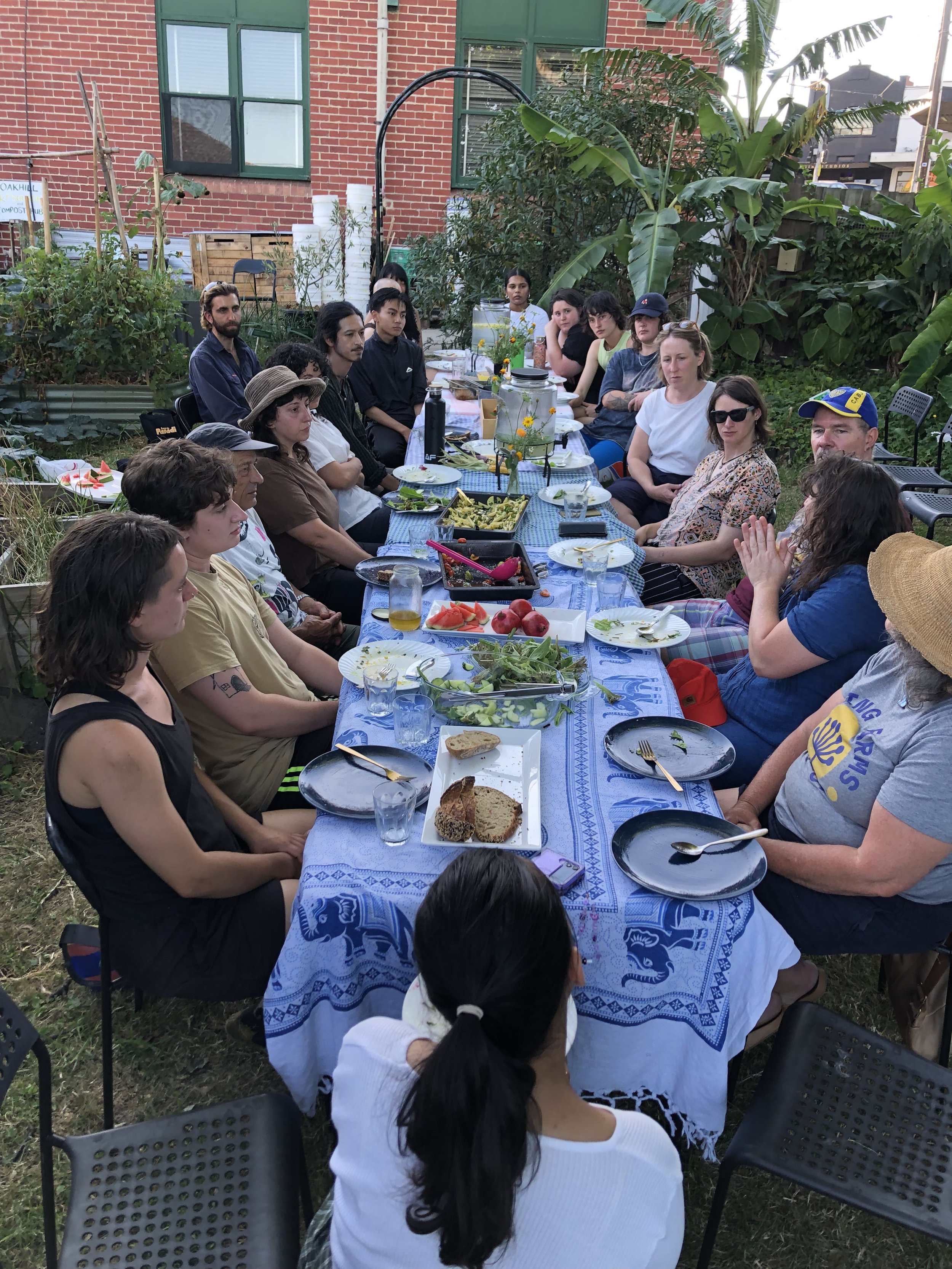What is food justice?
Food justice is a call for dignity, fairness and access to our most basic human need. Food.
It’s the belief that no-one should be denied the right to nutritious food. That it is the foundation of healthy people, families and communities and as such, belongs to everyone.
Food justice calls on us to honestly ask where power sits in our food systems. To ask who wins, and who loses, when food is treated only as a tradable commodity and its other attributes - a source of human health, community strength and connection to nature - are lost amidst marketing messages, ultra-processed packages and supermarket aisles.
Powered by this belief that food belongs to everyone - food justice practitioners work to build new food systems that better serve people, communities and nature. Food justice in action often looks like community owned and operated farms, local food celebrations, campaigns for customer and worker rights, supporting new farmers or advocating for public investment in communally accessible food for health, resiliency, urban greening and social cohesion outcomes.
The food justice movement is often led by communities who struggle to access fresh, healthy food, or are exploited in modern food systems. These people include farmworkers, First Nations people forcibly removed from their productive land and families struggling to eat well as good food becomes increasingly unaffordable. For many people, food is a vehicle to bring communities together - a way to offer mutual aid to each in response to these systemic injustices. In this way, food justice is inherently linked to First Nations justice, Disability justice, Refugee and Migrant Workers justice, LGBTQIA+ justice and many other human rights movements.
Food justice is about building a food system for all. One that places the power to plant, harvest, share, eat and equitably trade healthy food squarely in the hands of everyday people. Given the scale of the commodified, industrialised food system across the world, making food justice the lived reality for everyone is no easy task.
But change is happening. One veggie bed and table at a time. Come and be part of it.
Need an example? How about educational justice.
In Australia, all citizens enjoy educational justice – the right to a high-quality education. So much so that we often take it for granted. While many people still face systemic barriers to accessing quality schooling - like poverty, race, language, disability and geography – education in Australia is, in principle, designed, funded and supported to be available to all.
As a society, we’ve drawn a line in the sand on education – no matter the cost, every young person has the right to learn well. To do anything different, would be unjust.
We’ve chosen a just education system, because we believe good schooling is fundamental to a thriving society. It enables employment, entrepreneurship, personal health, democracy, reduces poverty, promotes environmental sustainability and builds social cohesion.
Food justice asks, what if we applied the same principle to food?



